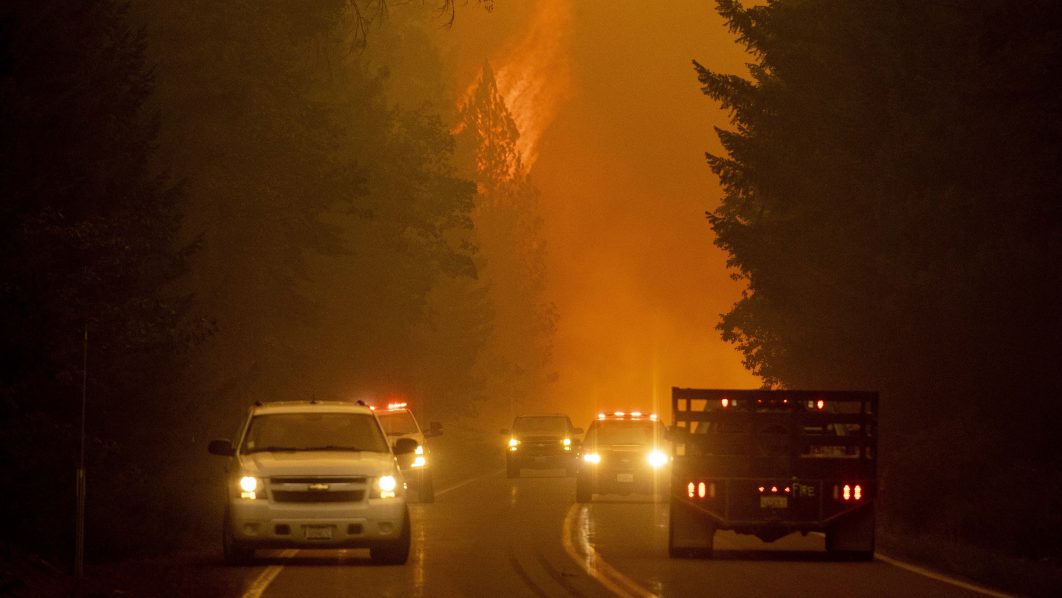
A new report has stressed need for urgent climate action to secure a liveable future for all. The report, which was released on Monday, March 20, 2023, entitled, ‘Climate Change 2023: Synthesis Report’, based on years of work by hundreds of scientists during Intergovernmental Panel on Climate Change (IPCC)’s sixth assessment cycle that began in 2015, noted climate change as a threat to human and planetary well being.
It said humans were responsible for all global warming over the past 200 years, leading to a temperature rise of 1.1°C above pre-industrial levels, which has led to more frequent and hazardous weather events that have caused increasing destruction to people and the planet.
In 2018, IPCC highlighted the unprecedented scale of the challenge required to keep warming to 1.5°C. Five years later, that challenge has become even greater due to a continued increase in greenhouse gas (GHG) emissions.
The pace and scale of what has been done so far, and current plans, are insufficient to tackle climate change. According to the report, the 1.5°C limit is still achievable and outlined the critical action required across sectors and by everyone at all levels. It reminded everybody that every increment of warming would come with more extreme weather events.
The report, which has as key themes, ‘climate solutions’, ‘climate justice’, and ‘climate speed’ said when actions are taken now, humanity can “secure a livable, sustainable future for all.”
Said Aditi Mukherji, one of the 93 authors of this ‘Synthesis Report’, in the closing chapter of the panel’s sixth assessment: “Climate justice is crucial because those who have contributed least to climate change are being disproportionately affected. Almost half of the world’s population live in regions that are highly vulnerable to climate change. In the last decade, deaths from floods, droughts and storms were 15 times higher in highly vulnerable regions.”
In this decade, accelerated action to adapt to climate change is essential to close the gap between existing adaptation and what is needed. Meanwhile, keeping warming to 1.5°C above pre-industrial levels requires deep, rapid and sustained GHG emissions reduction in all sectors. Emissions should be decreasing by now and will need to be cut by almost half by 2030, if warming is to be limited to 1.5°C.Clear way ahead. The solution lies in climate resilient development. This involves integrating measures to adapt to climate change with actions to reduce or avoid GHG emissions in ways that provide wider benefits.
“The greatest gains in wellbeing could come from prioritising climate risk reduction for low-income and marginalised communities, including people living in informal settlements,” said Christopher Trisos, one of the report’s authors. “Accelerated climate action will only come about, if there is a many-fold increase in finance. Insufficient and misaligned finance is holding back progress.”
Political commitment, coordinated policies, international cooperation, ecosystem stewardship and inclusive governance are all important for effective and equitable climate action. If technology, know-how and suitable policy measures are shared, and adequate finance is made available now, every community can reduce or avoid carbon-intensive consumption. At the same time, with significant investment in adaptation, we can avert rising risks, especially for vulnerable groups and regions.
Already, ahead of Conference of the Parties (COP) 28 summit holding in Dubai, United Arab Emirates (UAE), the EU Council is said to have approved a common position on climate and energy diplomacy, which sets out the bloc’s priorities ahead of the COP 28 summit.
Member states agreed to “systematically promote and call for a global move towards energy systems free of unabated fossil fuels well ahead of 2050” but recognised “a transitional role for natural gas.”
It is believed that “a dependence on fossil fuels leaves countries vulnerable to market volatility and geopolitical risk” and that climate neutrality “will require the global phase-out of unabated fossil fuels.”



